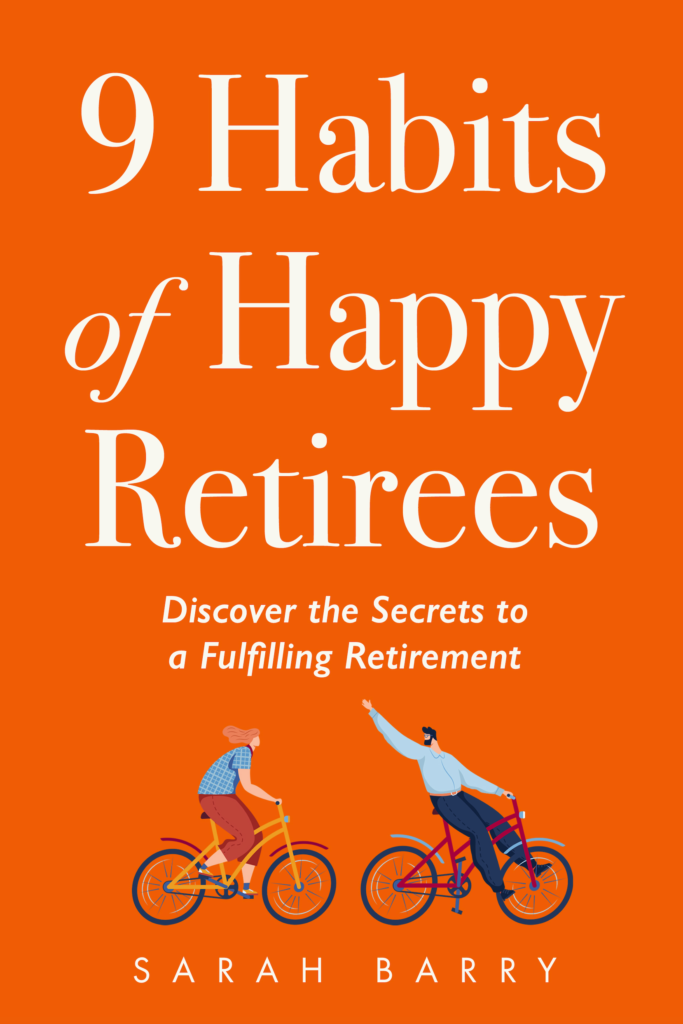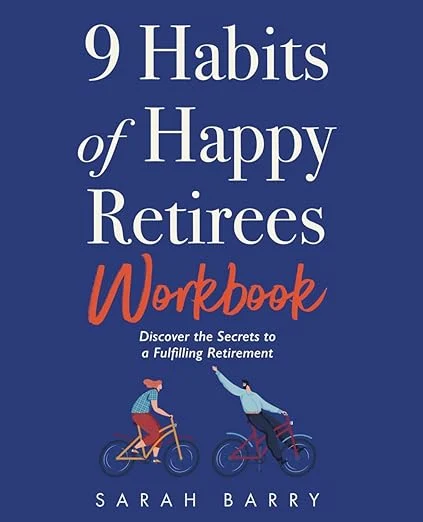How to Set Goals for Your Life— Especially in Retirement
Learn the different types of life goals and how to set meaningful goals that shape a vibrant, purposeful retirement.
What Are Life Goals?
Life goals are the desired states we hope to reach, maintain, or avoid over time (Nair, 2003). They guide how we live, work, grow, and relate to others. Life goals often span areas like health, finances, relationships, personal development, and contribution to others.
But what about retirement?
Too often, retirement is seen as a time after goals—a period of slowing down and “coasting.” In truth, retirement is a major life transition that opens the door to fresh opportunities, identity shifts, and the chance to redefine success.
If you’re approaching or already living in retirement, goal-setting is just as relevant—perhaps even more so. Setting the right goals can bring structure, meaning, and excitement to this new chapter.
Why We Might Set Life Goals — Especially in Retirement
Researchers believe we set goals to resolve discontent with our current circumstances (Nair, 2003). In retirement, discontent can take unexpected forms:
- A loss of identity after leaving a career
- Boredom from unstructured time
- Loneliness or disconnection
- A desire for renewed purpose
Setting retirement goals helps us move toward a life that feels rich in meaning. Goals act as a bridge between where we are and where we want to be—physically, emotionally, socially, and spiritually.
And here’s the good news: simply having a goal makes it more likely we’ll achieve it.
How to Set Life Goals in Retirement
Retirement goals don’t need to be overwhelming or career-oriented. They just need to be meaningful.
To improve your chances of success, research shows it’s best to set goals that are:
- Specific (clear and focused)
- Slightly challenging (but still realistic)
- Supported by feedback (from yourself or others)
- Tracked over time (Locke & Latham, 2006)
One popular method is the SMART framework. Here’s a retirement-friendly take on it:
SMART Goals for Retirement
- S: Specific – “I want to walk three times a week with my neighbor.”
- M: Meaningful – “This helps me stay healthy and socially connected.”
- A: Achievable – “It fits my fitness level and schedule.”
- R: Realistic – “I can manage this with my current energy and lifestyle.”
- T: Trackable – “I’ll mark each walk on a calendar.”
Short-Term vs. Long-Term Goals in Retirement
Short-term goals offer quick wins and boost momentum. Long-term goals provide direction and fulfillment. Both are important—especially in retirement when time feels both abundant and precious.
Short-term retirement goals might include:
- Joining a local club
- Organizing family photo albums
- Volunteering at a nearby charity
- Learning to cook a new dish each week
Long-term retirement goals might include:
- Writing your memoir
- Training for a walking pilgrimage
- Mentoring younger professionals
- Traveling to visit all your grandchildren
Break longer goals into short-term actions. For example:
Goal: Learn Spanish so I can travel confidently in Spain next year.
Short-term steps: Use a language app daily. Join a conversation group weekly. Watch Spanish movies with subtitles.
Turning Goals into Objectives
Objectives are the bite-sized actions that move you forward.
For example:
Goal: Create a pollinator-friendly garden
Short-term goal: Buy native plants this month
Objectives this week: Research plant types, visit the nursery, and schedule planting
Think in daily or weekly tasks. Write them down. Celebrate completion.
This micro-goal approach is especially helpful in retirement, when flexibility is high and routines are self-directed.
Types of Retirement-Focused Life Goals
Life goals don’t stop when your career does—they just shift. Here are some types of goals that take on new meaning in retirement:
🎯 Health & Wellness Goals
- Build a sustainable fitness routine (e.g., walking, yoga, swimming)
- Improve sleep habits or nutrition
- Focus on mental health, mindfulness, or stress reduction
🎯 Financial Security & Lifestyle Goals
- Create a sustainable retirement budget
- Downsize or relocate for lifestyle alignment
- Explore part-time consulting or passion projects for supplemental income
🎯 Relationship Goals
- Strengthen bonds with adult children or grandchildren
- Make time for deepening friendships
- Reignite or reimagine your romantic relationship
🎯 Personal Development Goals
- Learn a new language or instrument
- Take an online course or pursue a degree
- Read one book per month on topics you love
🎯 Contribution & Legacy Goals
- Volunteer in a meaningful role
- Share your expertise through mentoring or speaking
- Write your life story or create a legacy project
🎯 Joy & Adventure Goals
- Explore new hobbies or revisit old ones
- Travel to new places—near or far
- Make a “50 things I’ve always wanted to do” list and start checking it off
Goal-Setting Tips for Retirees
✅ Create a bucket list—with purpose. Don’t just think about fun activities. Include meaningful projects, personal challenges, and growth goals.
✅ Use “themes” to guide your year. Instead of a long list of resolutions, choose a word or focus: “Explore,” “Rebuild,” “Connect.”
✅ Build routine with flexibility. Retirement thrives on rhythm—not rigidity. Choose a few structured times each day to work toward goals.
✅ Acknowledge seasons. Some goals fit summer better than winter. Others are more emotionally suited for different life phases.
✅ Find accountability—gently. Share goals with a friend, partner, or coach who can support you without pressure.
✅ Celebrate progress. Retirement isn’t about hustle—it’s about living fully. Every step toward a meaningful goal deserves celebration.
Final Thought: Retirement Is the Perfect Time for Goal-Setting
Contrary to old stereotypes, retirement isn’t about fading into the background—it’s about reimagining what matters most. It’s a time to shape your days with intention and design a life filled with vitality, growth, and contribution.
When you set goals that align with your current values and dreams, you unlock a deeper sense of purpose. So ask yourself:
- What haven’t I done yet that still calls to me?
- What can I contribute that feels deeply meaningful?
- How do I want to feel at the end of each day?
Whatever your answers, your goals can guide you there—one meaningful step at a time.
Want more inspiration for a fulfilling retirement?
Check out 9 Habits of Happy Retirees and the companion workbook—available now on Amazon.

Retirement Re-defined
“9 Habits of Happy Retirees” is your guidebook to crafting a retirement lifestyle that goes beyond financial security, focusing on the habits that lead to true happiness and contentment in your golden years.

The Essential Workbook
This workbook is designed to complement the book’s theoretical foundation, it offers a hands-on approach to improving your mental, emotional, and social well-being in retirement.

